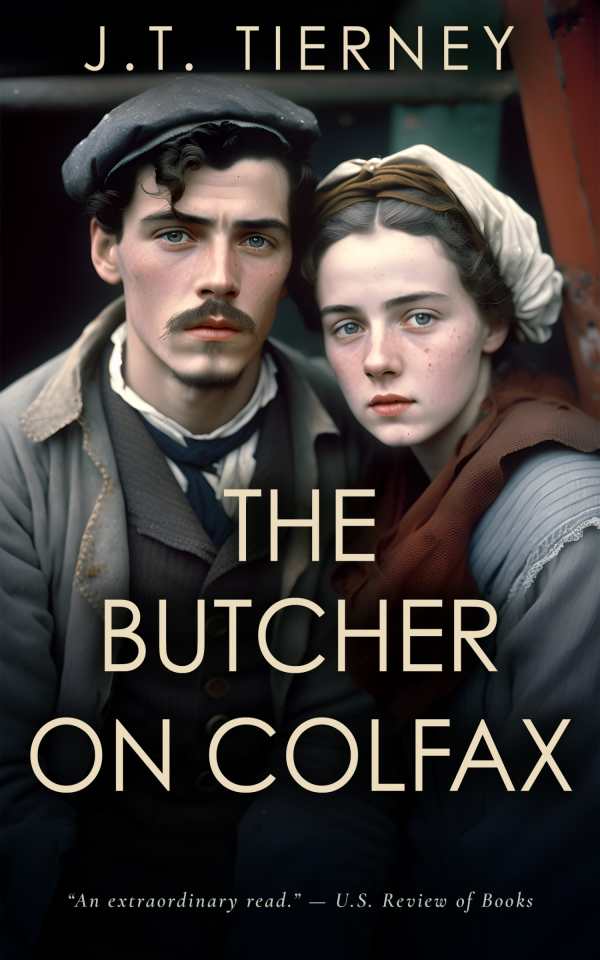
The Butcher on Colfax Ave
In the thought-provoking historical novel The Butcher on Colfax Ave, working-class people struggle in a changing world.
In J. T. Tierney’s dynamic historical novel The Butcher on Colfax Ave, people in late nineteenth-century Denver, Colorado, face dramatic upheavals.
Tom and Emmett are Irish immigrants who board a train to Denver to seek their fortunes. On the same train, Irish sisters Nora and Alice have similar goals. Upon their arrival in the city, the four face their first challenge: finding work. As luck would have it, Denver is booming, and they all find starter jobs before moving on to better paid work. Tom becomes a carpenter and Emmett an assistant at a grocery and butcher shop. Nora becomes a shopgirl and Alice a switchboard operator.
Though its initial setup suggests a romantic plot, little is predictable in this thought-provoking story about working-class people struggling in a changing world. Its chapters are short and action oriented; each vignette focuses on one of the four, who represent diverse perspectives but are also all interested in being self-supporting. Historical details and events are used to flesh their world out, as with the Panic of 1893; most illustrate the specific ways that government mistakes and policies affect working-class people. For instance, Tom loses his job and can no longer afford housing, so he goes to live in a tent city erected by the city of Denver. His fortunes turn when he’s hired onto the state capitol building project, the only construction project that doesn’t slow down during the period.
Vivid language runs throughout. When an aspiring armed robber enters the shop where Emmett works, for example, Emmett stays “calm as a pound of liver on a platter.” And in conversation, the characters explore their interpersonal challenges and disagreements in depth. Tom and Emmett disagree about unionizing, for example, and the underlying assumptions each has about human nature form the basis of their politics. Whereas Tom, who becomes a union leader, believes people are good at heart and benefit from collaboration, Emmett, an entrepreneur, believes that people act from self-interest, so only individual efforts matter. However, the use of dialect is less effective: while Irish idioms like “It’s grand!” or “It’s a slog!” add color, the speech patterns of another character, Jedediah—a former bullwhacker who drove teams of oxen west from Missouri and who makes relentless use of profanities—are awkward because they’re littered with dropped consonants.
In the distinctive historical novel The Butcher on Colfax Ave, four immigrants navigate the changing landscape of nineteenth-century Denver.
Reviewed by
Michele Sharpe
Disclosure: This article is not an endorsement, but a review. The publisher of this book provided free copies of the book and paid a small fee to have their book reviewed by a professional reviewer. Foreword Reviews and Clarion Reviews make no guarantee that the publisher will receive a positive review. Foreword Magazine, Inc. is disclosing this in accordance with the Federal Trade Commission’s 16 CFR, Part 255.
